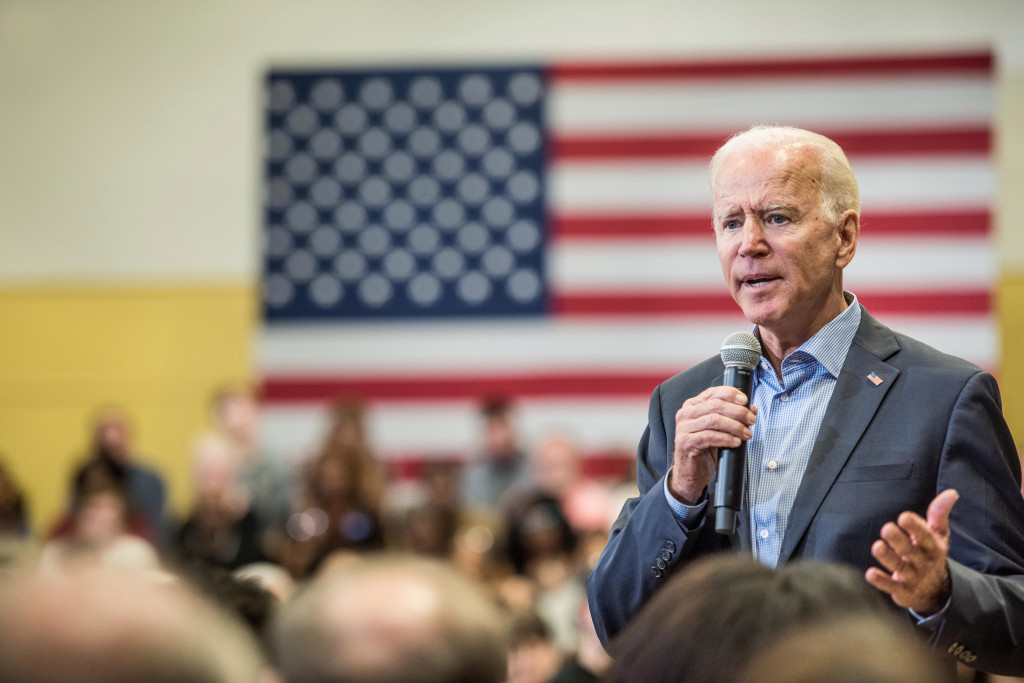
Photo by Sean Rayford / Getty Images
Former Vice President Joe Biden had a rough start to his presidential run as he did not win the first three state primaries of Iowa, New Hampshire and Nevada.
However, the fourth state primary in South Carolina started his streak of success and began his path to democratic frontrunner for president of the United States.
On February 29, South Carolina was the last state to vote before Super Tuesday, where 15 states vote for their preferred presidential candidate, and Biden won by a margin of 20 points.
Biden continued this success on Super Tuesday and won 10 of 15 states, including the second biggest state for grabs, Texas.
Biden performed well for a couple of reasons.
The first is that Biden had massive momentum going into Super Tuesday, completely dominating every other candidate in South Carolina.
Second, Biden does extremely well with southern states and minority voters, and states such as Alabama, Arkansas and Texas were voting on Super Tuesday, helping Biden receive key delegates he needed to become the frontrunner.
The last and very important reason that Biden did well on Super Tuesday is that candidates South Bend, Ind. Mayor Pete Buttigieg and Senator Amy Klobuchar dropped out before Super Tuesday and endorsed Biden (alongside former candidate Congressman Beto O’Rourke) in Texas the night before the very important election day.
Biden used this very successful Super Tuesday to further cement his lead as the frontrunner. Since then, he has won eight of the 11 primaries, including Florida and Michigan, which both have many delegates. As of March 29, Biden currently has 1,183 delegates, a 312-delegate advantage over Senator Bernie Sanders’ 871.
Sanders since South Carolina
Sanders had a very successful first three primaries, as he won New Hampshire and Nevada and came in second in Iowa to Pete Buttigieg (Sanders won the popular vote but lost in delegates) and was frontrunner leading in delegates until Super Tuesday.
On Super Tuesday, he only won four of the 15 states (Colorado, Utah, Vermont and California, the state with the most delegates.)
Sanders did not do well in southern states.
He underperformed on Super Tuesday for two major reasons. One, Senator Elizabeth Warren, the candidate most like Sanders and his platform, remained in the race for Super Tuesday. Second, the biggest reason was young voter turnout. Sanders’ platform relies on the turnout of Millennials and Generation Z as his progressivism appeals to the younger population but hurts him with older generations.
Since Super Tuesday, Sanders has won three of 11 primaries which has awarded him 21 delegates total. Sanders intends to participate in in the April Democratic Debate and future
primaries, but if he does not soon begin to mount a comeback, Biden will be the democratic nominee competing against President Trump in November.
Future primaries
The United States’ next primaries are currently scheduled for April 7 in Wisconsin, April 10 in Alaska and April 17 in Wyoming.
Connecticut, Delaware and Indiana have moved their primaries to June 2. Ohio originally moved theirs to June 2, but it is now scheduled for April 28. Most states have followed by changing their primary date to June 2, but others have pushed theirs back to late May (Hawaii and Georgia), and some have pushed farther than June 2 (Louisiana).
The discussion to have either regular voting or to have every person mail in their ballot with their votes, as Wisconsin is suggesting, is an attempt to try to continue social distancing.
- Wright State’s Model UN Team Reflects on Win, Looks Forward to Next Year
- Millett’s Malfunctions & Why the Fire Alarms Kept Ringing
- SGA: Saying Goodbye to Past Members and Swearing in New Members
